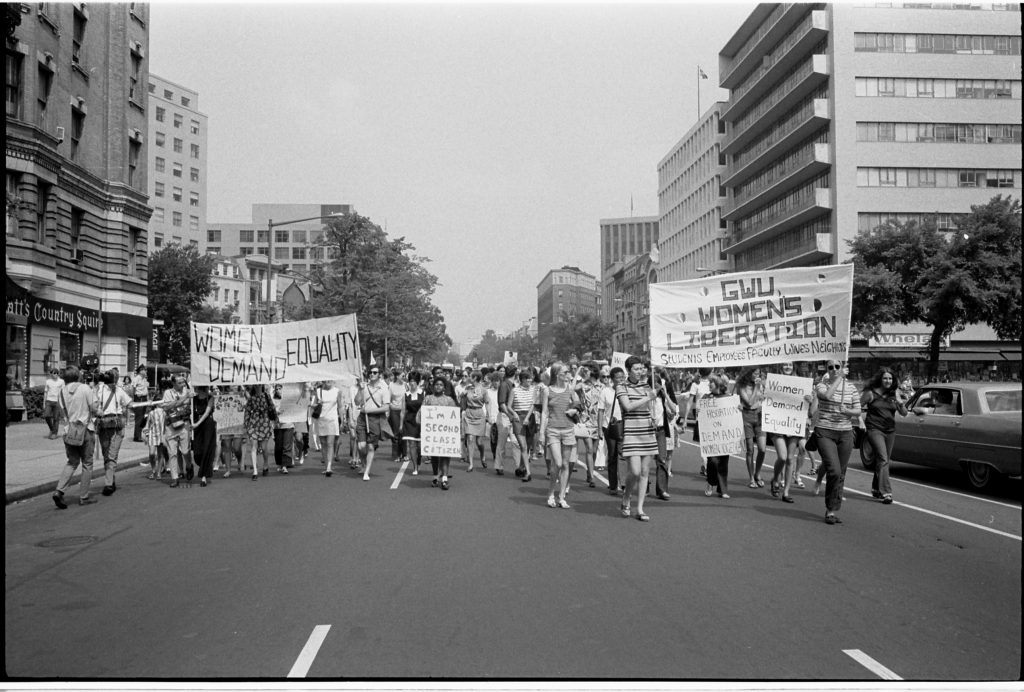 I understand the frustration many people have when they hear the word “feminist”. To a certain extent the negative interpretation of the word itself has denounced the feminist movement. It is important to note that the movement arose to empower women, originating from the idea that women rarely been allowed to exercise power. The point of female empowerment is to give women the opportunity to be elevated to an equal status as men, not to surpass it.
I understand the frustration many people have when they hear the word “feminist”. To a certain extent the negative interpretation of the word itself has denounced the feminist movement. It is important to note that the movement arose to empower women, originating from the idea that women rarely been allowed to exercise power. The point of female empowerment is to give women the opportunity to be elevated to an equal status as men, not to surpass it.
When we hear celebrities who preach female independence and power, there becomes a somewhat of a blurred line between what they are actually implying as so-called “female-empowerers” and the true meaning of feminism. These celebrities consistently reject feminism as a notion that they fit into because of its aggressive connotation. I believe this rejection originates from the fear of being bashed and criticized into the infamous connotation that has been built around what feminism really is. Instead of defining themselves as feminists, these celebrities often refer to themselves as Humanists, and although the essence of feminism does lie in humanism, it is not the same thing. Humanism is a doctrine that highlights the value in human beings, it also adopts the power of rationalism over faith and delves deeper into areas of philosophy. Therefore, humanism is an inappropriate synonym to the essential meaning of feminism. Indeed, people are finding new words to describe themselves with such as “equalist” or “genderist”. I completely understand the logic behind this. However, what concerns me is that this generation of words undermines the foundation of feminism.
Firstly, let us consider what the movement originates from; the inequality of sexes. Throughout history females, in most areas, have been deemed inferior to the male sex, hence the focus on “fem” in feminism.
Secondly, I would like to ride with you on the wings of history, back to 1865 to the continent of North America, where the 13th, 14th and 15th amendments were ratified into the Constitution of the United States of America – allowing equal protection by laws to all US citizens regardless of ethnicity or race. Now moving on to 1892, to the Plessy v. Ferguson case when the “Separate but Equal” doctrine was legalized in Louisiana and eventually spread throughout the rest of the States. This racial policy was used to justify the racial segregation practiced in many parts of the United States. “Separate” and “Equal” are two completely contrasting words, especially when considering the history of black Americans that predisposed a culture founded on slavery. This past hierarchy implied that black Americans would automatically become the inferior race during segregation.
So how is this relevant? Well friends, let’s look at the word “Equal” and how it was twisted, manipulated and misinterpreted in the past. This manipulation was a classic case of how a minority was denied its human rights due to the congressmen’s inability to respect and understand the soul concept that equality represented.
There is strength in the word Equality, and by all means equality is the core of feminism and all other civil rights movements, but my fear comes from the past experiences of this word. Superiority gives leeway for people to render and market a word through a biased perspective. It is very likely that the court of Louisiana genuinely thought their “Separate but Equal” legislation was equal, but it certainly was not for people of non-white ethnicities. Our eyes are cloaked by social filters, which limits our insight. This makes it impossible to understand what equality is if you have never put yourself in the shoes of others. If you want to understand how a balanced empowerment of both sexes is experienced, you need to open your mind to the problems in front of you that may not affect you but still exist. Otherwise we fool ourselves into thinking we have achieved equilibrium without hearing the voices of those who need it most, those who are actually being affected by the problem.
Feminism is a word that has been perpetually betrayed by these social filters. You hear what you want to hear but you do not recognize its significance. When many hear the word feminism they translate it to “Female selfishness”. When I hear this word I associate it to the immense injustices of the past and present experienced by millions of women, the centuries’ worth of struggles and the globalization of the rudimentary base of any modern culture; just treatment of all.
How can we expect to develop as a world and as individuals if we still stutter when pronouncing the word feminism? How can we expect an end to war, modern slavery, animal cruelty or racism if we haven’t yet solved society’s most basic problem? How can we say we belong to a liberal society if we suffer from the fear of an incorrect interpretation of an idea that has clearly been defined? Why is feminism still being turned over like a hot potato? Accept feminism as a valid, and worthwhile movement that is integral to our social wellbeing.

